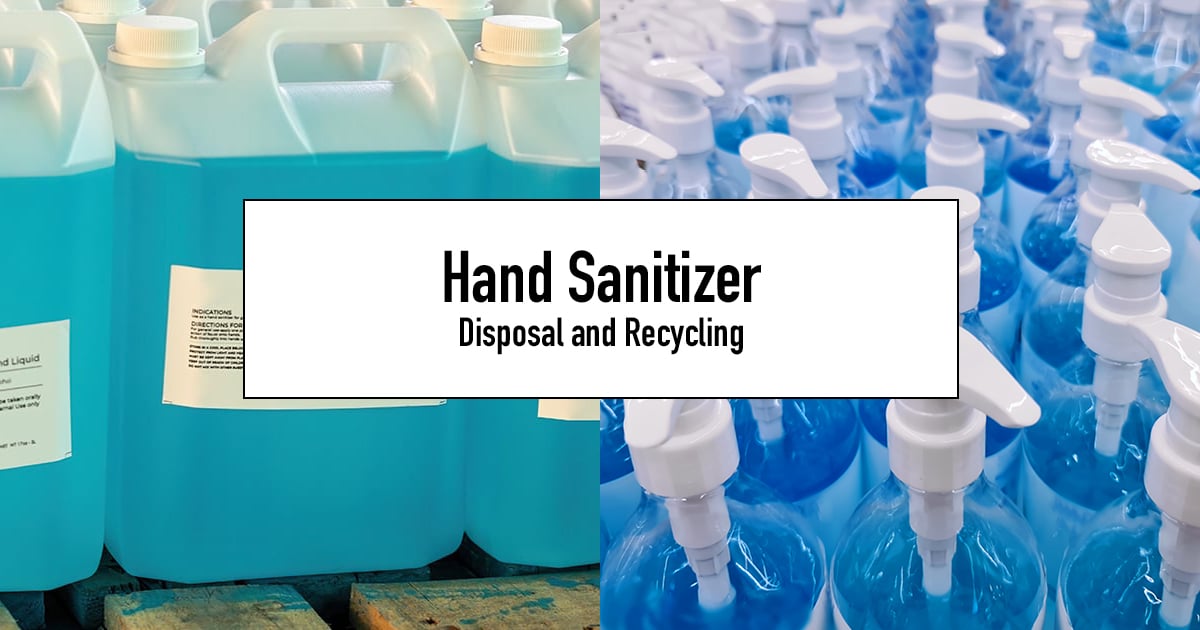Storing Hand Sanitizers
Most of the hand-sanitizing liquids in use today are gels that are 60-95% ethyl or isopropyl alcohol–classifying them as Class 3 Flammable Liquids.
Hand sanitizers cannot be stored in office buildings, per OSHA regulations and any amounts of more than 25 gallons must be properly stored in flammable-liquid storage cabinets.
Risk Hazards of Storing Hand Sanitizer
Most alcohol-based hand sanitizer in use today for personal us poses a low fire risk. Personal use with small individual bottles does not pose any risk of fire or ignition, but when stored in large quantities, the risk of fire is greatly increased due to the amount of ethanol presented in bulk.
What Does Large Quantities Mean?
But what does “large quantities” mean when looking at the storage of sanitizer? The NFPA (National Fire Protection Institute) advises that any amount over 5 gallons or more of alcohol-based hand sanitizer is considered as large quantity and would fall under regulation requirements of NFPA 30. NFPA 30 is the code for flammable and combustible liquids and provides safeguards to reduce the hazards associated with the storage, handling and use of flammable and combustible liquids. Ignition flashpoints vary and rules in NFPA 30 vary as well for those flashpoints.
Ignition Flashpoint Matters
To determine the flammability of a substance, you look at its flash point. Ethanol or Isopropyl Alcohol are the alcohols used in FDA approved hand sanitizer. The flash points in Ethanol or Isopropyl Alcohol are fairly low–around 60-64 degrees Fahrenheit. Low flash point liquids mean that an external heat source is not necessarily needed to a fire to occur since high concentrations of vapors are dangerous on their own. All in all, alcohol based sanitizers are flammable and should require the same care of any other flammable liquid.
Regulations for Hand Sanitizer Safe Storage
Flammable liquids, according to NFPA 30 with a flashpoint of less than 100 degrees Fahrenheit as found in alcohol-based hand sanitizer liquids and gels should not be transferred to or stored in plastic Intermediate Bulk Container (IBC). An IBC is a pallet, mounted, industrial grade reusable container that’s used for storing and transporting bulk liquids.
Companies new to storing hand sanitizers due to COVID 19 may not be aware of proper storage , particularly the many breweries and distilleries asked asked to produce hand sanitizer over the past year. Government and private organizations like OSHA and NFPA are responsible for developing and setting regulations for the proper use and storage of flammable liquids like hand sanitizer, but companies must use proper storage policies to reduce the risk of fire.
Changing the equipment, materials, or manufacturing processes of your facility, requires a reevaluation of the building’s fire protection equipment and overall fire safety plan–this is referred to as change management.
Beware of hand sanitizers containing methanol or 1-propanol
The Food and Drug Administration (FDA) has cited several companies and manufacturers companies for making and selling hand sanitizers that contain methanol or 1-propanol, both of which are toxic to human health and neither were approved for hand washing by the EPA:
- Ethanol found in spirits for drinking, methanol mostly used to make fuels, solvents and antifreeze. Referred to as “wood alcohol” or “methyl alcohol”, methanol is colorless, highly flammable and extremely poisonous if consumed.
- Used in industry, some cosmetics and antiseptics, 1-Propanol is used as a multi-purpose solvent. It’s highly flammable, harmful if congested and can damage your eyes. Respiratory irritation and central nervous system issues can result from inhalation.
FDA Updates on Hand Sanitizers Consumers Should Not Use
The recalled sanitizers listed here were falsely labeled as containing only ethyl alcohol. If your company purchased large volumes of any recalled sanitizer listed please call our Alhambra hazardous waste disposal office right away to schedule proper transportation and disposal. Our hazardous waste teams can be reached 24/7 at our toll-free number at (855) 242-9628.
Disposal and Recycling Alcohol Based Hand Sanitizer
Although the EPA is okay with their discarding a household amount of alcohol based hand sanitizer with regular trash, it should not disposed of down your drain.
Large amounts of hand sanitizer—at the SQG, LQG, or CESQG levels, which would be commercial and industrial amounts require a licensed hazardous waste disposal company. This is not only to protect the environment, but to follow state and national hazardous waste regulations.
Bulk Recycling
Bulk hand sanitizer in drums and large storage containers can be properly disposed and recycling at any of Hazmat’s nationwide owned and partner locations. Call (855) 242-9628
Bottle Recycling
Palletized alcohol based hand sanitizer in individual bottles can be disposed of and containers recycled. Call (855) 242-9628

